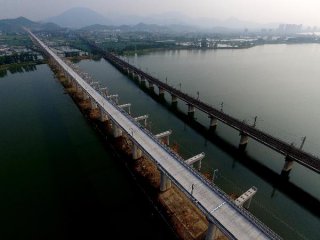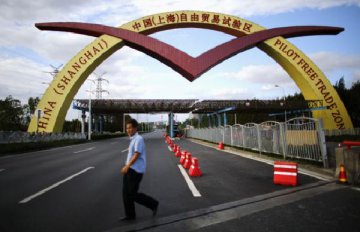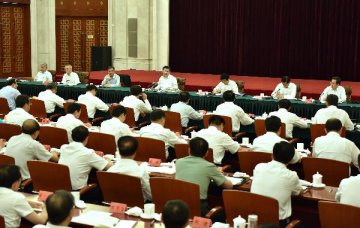
Overseas investors are set to embrace a new era of opportunities in China as authorities are determined to liberalize trade and investment rules.
China plans to roll out more measures to utilize foreign capital, promote free trade zones and create a negative list for foreign investment, according to a statement released Tuesday after a State Council executive meeting.
Last week, China added seven more free trade zones (FTZs) in Chongqing, Henan, Hubei, Liaoning, Shaanxi, Sichuan and Zhejiang, bringing the total number of FTZs to 11, just three years after the first FTZ, in Shanghai, opened for business.
Li Guanghui, deputy director of the Chinese Academy of International Trade and Economic Cooperation, sees the move as a clear message of determination and confidence from the Chinese central leadership to continue reform and opening up.
The new FTZs are proof that China is embracing inclusive growth, building an open world economy and reinvigorating international trade and investment, said Li.
Indeed, with restrictions on overseas investors lifted, China is an increasingly attractive destination for overseas investment. In the first half of the year, 13,402 foreign-funded firms were established in China, up 12.5 percent, according to official data.
In addition, China is continuing to improve how it regulates foreign investment, in efforts to create a stable, fair and transparent business environment.
Days after the announcement of new FTZs, China's top legislature passed revisions to four laws regulating inbound investment, with an easing of the rules for foreign and Taiwanese investors looking to start businesses across the Chinese mainland.
Provisions have been added to four laws: on foreign-capital enterprises, on Chinese-foreign equity joint ventures, on Chinese-foreign contractual joint ventures, and on the protection of investment of Taiwanese compatriots.
The revisions suspend administrative approvals for foreign and Taiwanese investors setting up ventures regulated by the four laws, following successful trials in several FTZs. If businesses are not on a negative list, they are now only required to submit business plans to local regulators. Trials in FTZs have proven to be effective, said Tang Wenhong, director of the Foreign Capital Department of the Ministry of Commerce (MOC), adding that the new revisions will create a more open and convenient business environment for investors.
In the first seven months of 2016, 5,783 enterprises were set up in the four FTZs by foreign investors and those in Taiwan, Hong Kong and Macao, securing inbound investment of 7.2 billion U.S. dollars, a year-on-year increase of 66.3 percent, according to the MOC.
A survey by the Development Research Center of the State Council, found that over 90 percent of firms said the new changes would help foreign companies to increase investment in China.
All respondents believed it was now easier to start a business. With the new openness, overseas investors are upbeat about the Chinese market. Italian firms are very optimistic about their development in China, especially in western regions, said Sergio Maffettone, consul-general of Italy in Chongqing, where one of the new FTZs is located.
China has made the opening-up of inland provinces one of its top priorities, said Chi Fulin, director of China Institute for Reform and Development.
Central and western provinces have great potential to tap foreign trade as a growth point, which will improve people's wellbeing as well as offering new opportunities to overseas investors, he said. Enidtem
























Latest comments